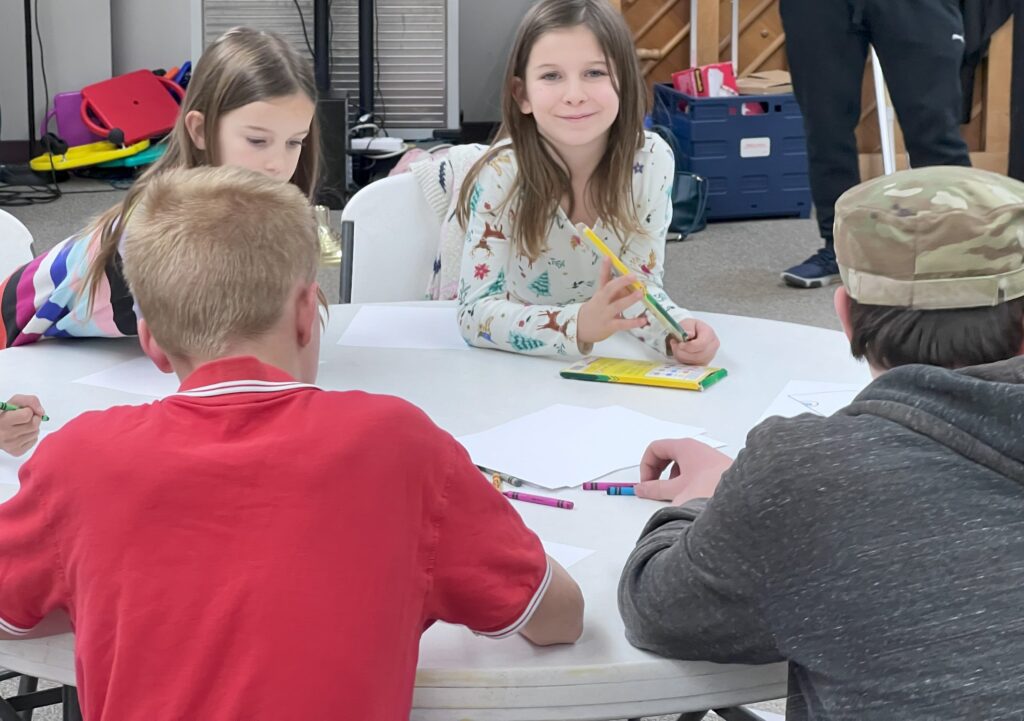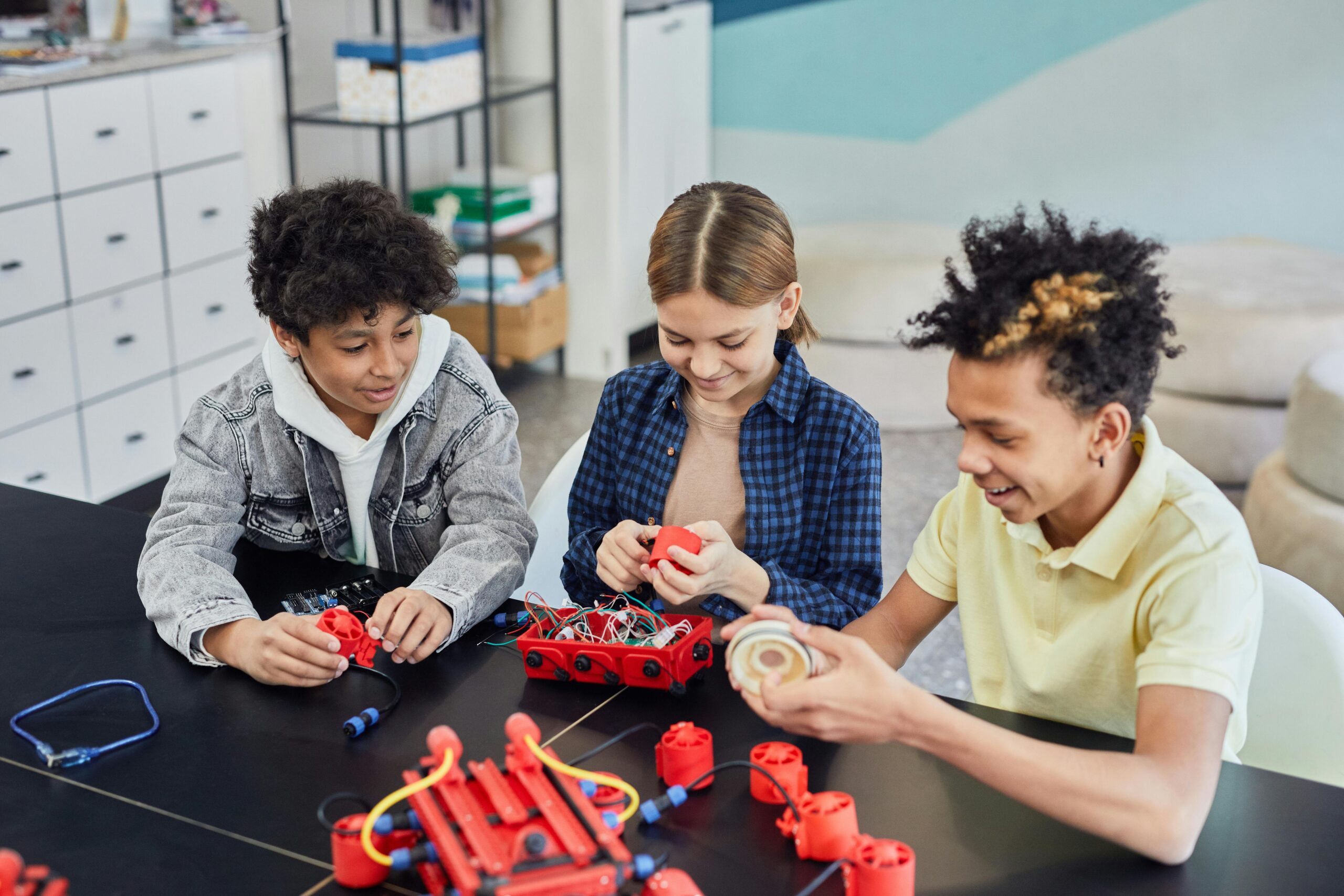
One of the common misconceptions regarding homeschooling is that homeschoolers do not have opportunities for adequate socialization. People assume that, because students are taught at home, the entirety of their time is spent within the walls of their residence. In fact, most homeschoolers enjoy a plethora of varied social opportunities throughout the week. Instead of being confined to rigidly segregated groups of peers in a controlled environment, homeschoolers thrive in groups with varied ages and levels of structure. This provides unique opportunities for developing leadership, adaptation, problem solving, and social awareness. Here are a few of the ways homeschoolers socialize:
Homeschoolers socialize with siblings
All day every day. This happens in a loosely structured play environment and allows for a natural age-based hierarchy. Older children learn responsibility and leadership, while younger children learn from the examples of their older siblings. This develops a mutual familiarity and trust, as well as an understanding of how actions have consequences. Older students learn that it is important to be mindful of the things they do and say, because there are little people they care about watching who will try to copy them.
Homeschoolers socialize through coops
Many homeschool parents opt to enroll their children in homeschool coops or online communities. Coops consist of more structured classes, usually once or twice per week, that are taught by parents. Coops introduce homeschool students to a more structured learning environment. They also allow for classes that are better accomplished in a group setting, such as PE, drama, public speaking, etc. For many families, coops are essential to a well-rounded homeschool environment, because they recognize the importance of a familiarity with, and confidence in, group settings.
Coops have a unique advantage over public schools, because homeschool families share a mutual love of learning and often an emphasis on respect for others. This means, that students develop their skills with confidence, surrounded by the encouragement and support of their peers. This is a stark contrast to the bullying and ridicule that often happens in public schools.
Homeschoolers socialize through sports
Whether it’s through a homeschool sports league, a gym, or a public-school sports program, homeschoolers enjoy interacting with other kids competitively. Sports are a great way for children to learn leadership, teamwork, strategy, communication, and self-discipline, so homeschool families are often involved on some level. Depending on which option they choose, homeschoolers socialize with kids growing up in school environments that are different from theirs, as well.
Homeschoolers socialize through extracurricular activities
Many homeschool families incorporate a wide variety of extracurricular activities into their children’s education program. Often times, homeschool families have more extracurricular activities than kids in public school, because they have more “free time” in which to do it. It is not uncommon for homeschoolers to have 2-4 hours of structured learning during the day. These shorter school days result in much more time for pursuing individual interests. Whether it’s music lessons, robotics or chess club, Science Olympiad, swimming lessons, or a plethora of other possibilities, homeschoolers have the freedom to strategically plan their days around their activities of choice.

Homeschoolers socialize during family errands
Contrary to popular belief, homeschooled children are often very social. This can be attributed largely to their constant interaction with individuals of all ages and backgrounds. Because they grow up in a very socially holistic environment, homeschool children have no problem transitioning from one generation to another in their interactions. They adapt quickly to the scenario before them, and view almost everyone as a new potential friend. Errands with family members also gives them the benefit of a wider understanding of the responsibilities that come with life, so they can move confidently into each new season.
Homeschoolers socialize through scheduled play dates
Homeschool families recognize that staying at home alone can be lonely. That is why they often schedule play dates with other homeschoolers. It’s an easy thing to do when school is only a couple of hours per day and everyone is going to be at home doing life things. So, rather than do life alone, homeschoolers choose to do life together. And, often, homeschoolers choose to get together to do school, as well. Homeschoolers who don’t have the obligation of long 8+ hour school days and homework have a lot more time for unstructured socialization.
Homeschoolers socialize through work
Homeschool students are often entrepreneurs, or they choose to get a job when they are old enough to find employment. They are motivated. They also understand the importance of earning an income for real world existence. And, because they have the time for it during their shorter school days, many homeschoolers graduate with a resume.
Homeschoolers socialize through college courses
It is not uncommon for homeschool students to excel in their studies. They often achieve more, in far less time, than their peers in public school. Because of this, homeschoolers often find themselves taking college courses to finish out their high school tenure. These may be done online or in person, but almost always involve social interactions with their teachers and their peers. Students who do this also learn a higher level of professionalism at a younger age.
Conclusion
Homeschoolers socialize in a number of different ways. They also manage to pack a lot of life experience into a short amount of time. As a result, they tend to be wise, confident, responsible, and often good leaders. Despite the assumptions that many people like to make, homeschoolers usually don’t struggle from lack of socialization.

